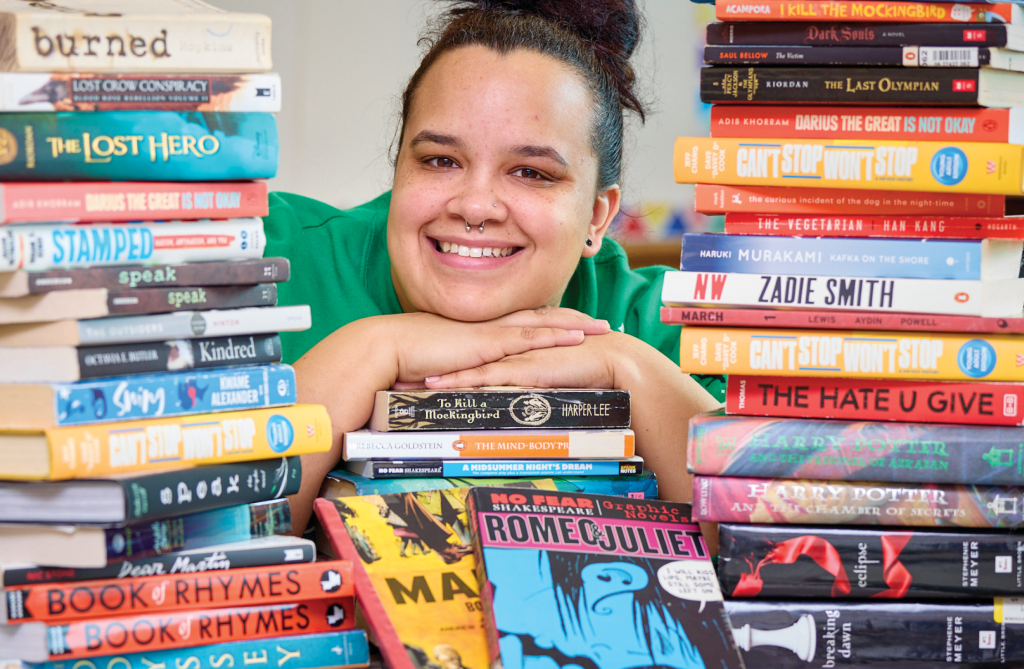Teacher’s Toolkit
Tenisha Newman, Baltimore County 9th Grade English Teacher

Tenisha Newman is a first-generation college graduate and a 9th grade English teacher at Catonsville High School in Baltimore County. She’s a member of the Teachers Association of Baltimore County.
REPRESENTATION MATTERS When I was a student in my high school, I realized that many of our texts did not hold representation of different minority groups, especially from a more positive perspective. Being a member of various minority groups myself, I was determined that the texts I used within the curriculum and in my own classroom library were full of stories and books that showed vast diversity. For students to see themselves in their readings helps to build connections and furthers understanding of the text and self.
INCLUSIVITY As an educator, it is important for me to be inclusive with my students in their learning styles. This is extremely important when it comes to reading our texts. Whenever possible, making sure to include multiple formats of the texts we are reading is critical. Including graphic novel versions for our visual learners, audiobooks or reading out loud for my audio learners, and then the traditional text format for those students who prefer to read the text or book. Making the stories accessible for all of my students is so important to get them engaged in the story and their learning and under-standing the stories.
BE OPEN & UNDERSTANDING Be open to having those tough conversations. When we read our first book of the year, we have either community circles or socratic seminars to discuss various topics in the novel. We attempt to continue this throughout the year when we have controversial or important topics. These conversations allow students to express their own viewpoints and listen to the ideas of others.
BE A SAFE SPACE It is important to remember that not all students have a place to feel safe. With such varying backgrounds, beliefs, and identities, students may not feel safe in an environment that does not support tolerance. Hold space and hold a tolerant attitude. Teach students to be considerate, kind, and compassionate, even to students they may not understand. Make sure to hold students accountable when they are in a place of intolerance. Use the tools you have to teach this, whether by mirroring yourself to the students or using literature to discuss tolerance and understanding.
GROW WITHIN YOUR PROFESSION Use the trainings given by MSEA and other institu-tions. Do not be afraid to get out of your comfort zone to take trainings on being culturally aware or how you can better implement inclusivity. Learn about various ways to incorporate different media platforms into your classroom to better support students. As you grow, you will see your students grow too as they reach their potential.

